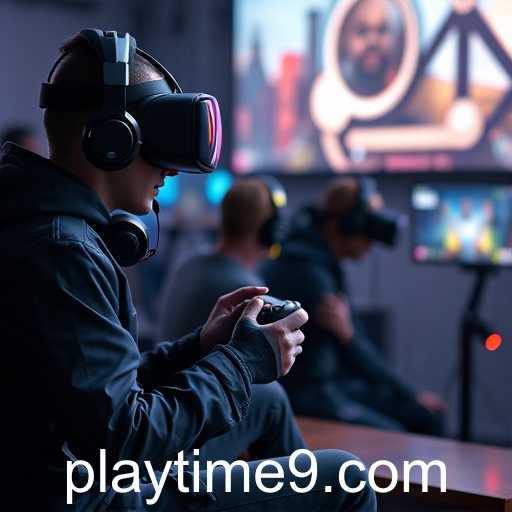Explore how the concept of playtime has evolved in 2025 amidst technological advancements and emerging gaming trends.
As we stride further into the year 2025, the realm of playtime continues to experience revolutionary changes, both in terms of technology and user interaction. The gaming industry's relentless push for innovation has brought to light several trends that are reshaping how enthusiasts engage with their favorite pastime.
Virtual Reality (VR) and Augmented Reality (AR) have become cornerstones in the evolution of playtime. With the enhanced capabilities of VR headsets and AR devices, players are immersing themselves in hyper-realistic environments that were previously unimaginable. The integration of these technologies has transformed casual gaming into an experience of exploration and heightened reality, blurring the lines between the virtual and the real world.
Furthermore, the development of AI-driven game designs signifies another leap in gaming dynamics. Sophisticated algorithms now tailor gaming experiences to individual player preferences, creating personalized journeys throughout the gameplay. This level of customization not only increases user engagement but also ensures that players are continually challenged according to their skill levels.
The rise of cloud gaming services further amplifies the accessibility of games, enabling users to stream high-quality content without the need for expensive hardware. This shift democratizes access to top-tier gaming experiences, allowing broader audiences to partake in the digital playgrounds that were once exclusive to those with high-end gaming setups.
Despite these technological advancements, the gaming community continues to prioritize social connectivity. Multiplayer modes are increasingly designed to emphasize cooperative strategies, fostering a sense of community and collaboration among gamers worldwide. Online gaming events and tournaments are now broadcasted with the production quality of professional sports, drawing millions of viewers who tune in to watch elite gamers in action.
As we witness these dynamic changes, the question remains: How will the concept of playtime continue to evolve, and what implications will this have on our social and cultural landscapes? As we adapt to this rapidly transforming entertainment sector, one certainty persists—playtime, regardless of the technological medium, will remain a fundamental part of human expression and enjoyment.




